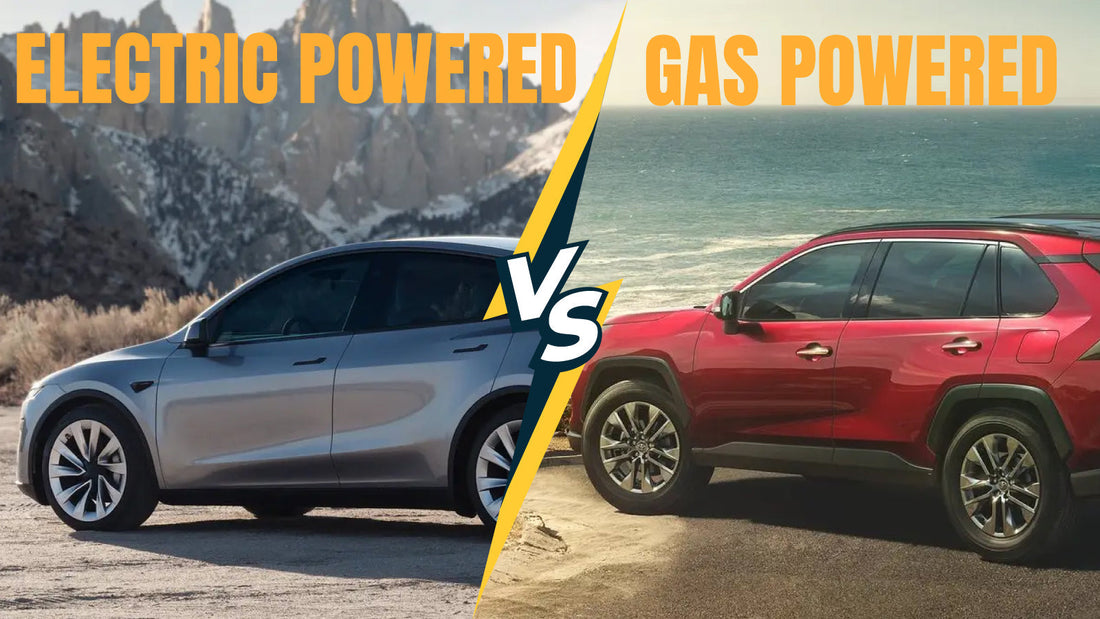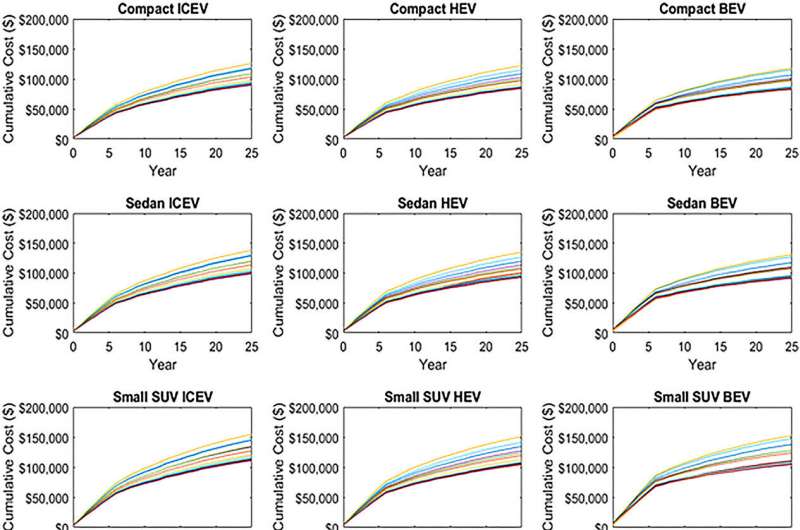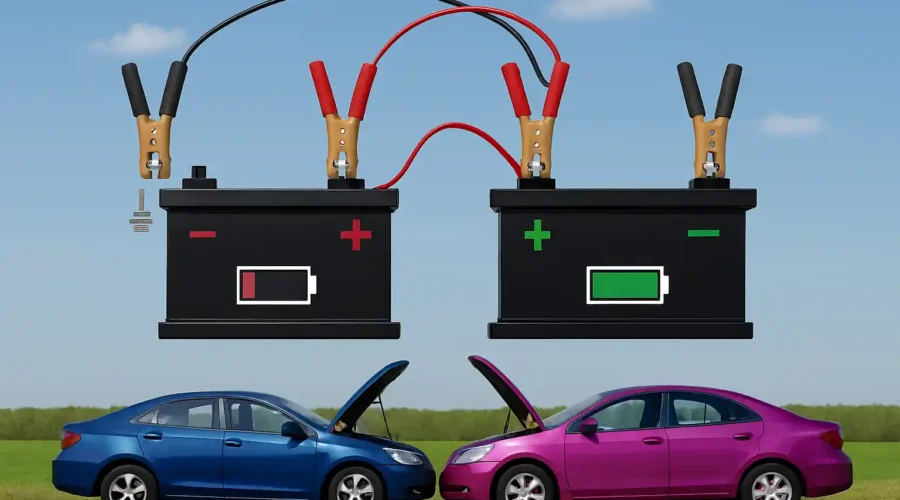Maintenance requirements can be quite the revelation when comparing electric SUVs to their gas counterparts. Electric SUVs, with fewer moving parts, require significantly less maintenance, reducing costs and time spent at the mechanic. Conversely, traditional gas SUVs demand regular oil changes, fuel system inspections, and other routine services.
Since the advent of electric vehicles, the shift in maintenance needs has been remarkable. Electric SUVs, for instance, hardly demand brake pad replacements due to regenerative braking. According to recent statistics, owners of electric SUVs spend nearly 50% less on maintenance compared to those owning gas-powered SUVs, showcasing a clear advantage in both cost-efficiency and sustainability.
Electric SUVs generally require less maintenance than gas SUVs. Electric models lack components like oil and transmission fluid, leading to fewer routine services. Batteries and software need regular checks, but their long-term costs are lower. Gas SUVs demand frequent oil changes and fuel system inspections, increasing both the workload and expense.

Understanding Electric SUV Maintenance
Electric SUV maintenance primarily revolves around the battery and various software updates. Unlike gas SUVs, electric models don’t require frequent oil changes or transmission fluid checks. The battery management system (BMS) constantly monitors the battery’s health and performance. This system ensures that the battery works efficiently, minimizing strain. Over time, this reduces the chance of significant repairs.
Regular software updates are essential for electric SUVs. These updates can improve vehicle performance, enhance safety features, and fix bugs. Keeping the software up-to-date is crucial. Most manufacturers offer these updates over-the-air, meaning you don’t need to visit a dealership. This convenience can save drivers both time and money.
Brake systems in electric SUVs often last longer than in gas-powered vehicles. This is due to regenerative braking, which helps recharge the battery while reducing wear on brake pads. Many drivers find that they don’t need to replace their brake pads as often. This adds to the overall cost savings. Additionally, fewer brake repairs mean less downtime for the vehicle.
One overlooked aspect of electric SUV maintenance is tire care. Electric SUVs can be heavier due to their batteries, placing extra strain on the tires. Regular tire rotations and alignments are essential to prevent uneven wear. Checking tire pressure frequently ensures optimal performance. Proper tire maintenance is crucial for safety and efficiency.
Hybrid VS Gas Car || Which One Is Really Cheaper And Better To Buy?
The Basics of Electric SUV Servicing
Servicing an electric SUV often starts with checking the battery. The battery is the heart of the vehicle and needs to be in good condition to ensure optimal performance. Regular diagnostics involve scanning the battery management system. This helps identify any potential issues early. Technicians also check for software updates to enhance efficiency.
Another critical aspect is the electric motor. Unlike an internal combustion engine, electric motors have fewer moving parts. This means they require less frequent servicing. However, they still need regular inspections. This helps maintain their longevity and reliability.
Cooling systems in electric SUVs are different from those in gas-powered vehicles. They are designed to manage the temperature of the battery and the electric motor. Regular checks of the coolant levels and the system’s overall integrity are essential. This ensures that both the motor and the battery remain at optimal temperatures. Proper cooling system maintenance can prevent overheating issues.
Tire maintenance should not be overlooked when servicing an electric SUV. Due to the weight of the batteries, tires can wear out faster. Regular tire rotations and pressure checks are necessary to ensure even wear. Keeping tires in good shape also improves the vehicle’s overall efficiency. Properly maintained tires enhance safety and handling.
Key Components That Require Regular Checks
The battery is perhaps the most critical component in an electric SUV. It needs to be regularly checked for any issues such as degradation or potential malfunctions. A robust battery management system can help with this. Regularly monitoring the battery ensures that the vehicle runs efficiently. It also minimizes the risk of unexpected breakdowns.
Another vital component is the brake system. Electric SUVs use regenerative braking, which helps recharge the battery while slowing down the vehicle. However, the brake pads still need regular inspections. This ensures that they are not wearing out too quickly. Proper brake maintenance is crucial for safety.
The cooling system is essential for maintaining optimal performance. It ensures that the battery and electric motor stay within a safe temperature range. This system needs regular coolant checks. Technicians also inspect the overall system for any leaks or issues. Properly maintaining the cooling system prevents overheating problems.
The tires require regular attention due to the extra weight from the battery. This can lead to faster tire wear. It is essential to perform tire rotations and pressure checks. These steps ensure even tire wear and optimal performance. Keeping the tires in good condition improves safety and handling.
Software Updates and Battery Health Monitoring
Regular software updates are vital for maintaining the optimal performance of an electric SUV. These updates can address various issues, from improving battery efficiency to enhancing user interface features. They help keep the vehicle’s systems running smoothly. Many manufacturers provide these updates over-the-air, meaning drivers can download them without visiting a service center. This convenience represents a significant advantage over traditional vehicles.
Battery health monitoring is another crucial aspect. The battery management system (BMS) continuously checks the battery’s status. It evaluates the charge levels, thermal conditions, and overall health. Early detection of potential problems can prevent costly damage. Regular monitoring ensures that your electric SUV remains reliable and efficient.
Over time, batteries naturally degrade. Nonetheless, battery health monitoring can extend the lifespan of the battery. Adjusting charging habits based on BMS recommendations can help. For instance, avoiding extreme high or low charge levels can prolong battery life. This proactive care can save significant money in the long run.
Software updates can also enhance safety features. Advanced systems like adaptive cruise control and lane-keeping assist often improve with each update. This continuous improvement makes the driving experience safer. Staying updated ensures that you benefit from the latest advancements in vehicle technology.
Keeping both software and battery health in check not only optimizes performance but also boosts resale value. Prospective buyers are more likely to invest in a well-maintained vehicle. Documenting regular updates and monitoring builds trust. These practices can make a substantial difference when it’s time to sell your electric SUV. Maintaining a complete service record is beneficial.
Longevity of Electric SUVs vs. Gas Models
Electric SUVs often enjoy a longer lifespan compared to gas models. This is primarily due to fewer moving parts in electric vehicles, which reduces wear and tear. Components such as the electric motor and battery system experience less mechanical strain. This can lead to fewer breakdowns. With proper maintenance, electric SUVs can last well over 200,000 miles.
In contrast, gas models have more complex engines. These internal combustion engines require regular oil changes and other maintenance. Over time, they are more likely to experience issues like gasket leaks or fuel system problems. This regular upkeep can be time-consuming and costly. Frequent repairs can shorten the overall lifespan of the vehicle.
Battery longevity in electric SUVs has significantly improved. Modern lithium-ion batteries are designed to last longer and retain charge capacity better. Manufacturers often provide warranties for up to 8 years or 100,000 miles on batteries. This assurance gives owners peace of mind. Advanced battery management systems help monitor and maintain battery health.
Other components such as brakes also last longer in electric SUVs. Regenerative braking reduces wear on brake pads. This means fewer replacements are needed. The reduced need for frequent brake maintenance contributes to the vehicle’s overall longevity. In contrast, gas models typically require more frequent brake servicing.
The simpler design of electric SUVs often leads to greater durability. With fewer parts susceptible to damage, they tend to be more reliable. This simplicity can mean less time spent in the repair shop. Overall, the longevity of electric SUVs is a major selling point. Their durability offers significant advantages over traditional gas models.
Cost Comparison Between Electric and Gas SUVs
When comparing the costs of electric SUVs to gas SUVs, various factors come into play. Upfront, electric SUVs tend to be more expensive. However, they can be less costly over time due to fewer maintenance needs. Additionally, electric SUVs often benefit from government incentives. These incentives can significantly lower the initial purchase price.
Operational costs also differ between the two types of vehicles. Charging an electric SUV is generally cheaper than fueling a gas SUV. Electricity prices are more stable compared to fluctuating fuel prices. This stability can lead to predictable monthly expenses. Drivers can generally save money on energy costs with an electric vehicle.
Maintenance is another crucial area where electric SUVs often have the edge. They require less frequent servicing since they have fewer moving parts. Items like oil changes, which are routine for gas SUVs, are unnecessary for electric models. This can lead to substantial savings over the vehicle’s life. Less frequent repairs also contribute to these savings.
However, it’s not all about lower costs with electric SUVs. Battery replacement can be a significant expense, though modern batteries last a long time. Still, this is an important consideration for potential buyers. Despite this, many view the long-term savings as outweighing the potential high-cost replacements. Battery warranties can help alleviate some concerns.
A table to illustrate the cost differences between electric and gas SUVs might look like this:
| Cost Factor | Electric SUV | Gas SUV |
|---|---|---|
| Upfront Cost | Higher | Lower |
| Energy Costs | Lower | Higher |
| Maintenance | Lower | Higher |
| Battery Replacement | Potentially High | N/A |
Overall, the total cost of ownership for electric SUVs can be lower in the long run. Despite the initial higher price, reduced running and maintenance costs contribute to overall savings. For many, the environmental benefits and lower long-term expenses make electric SUVs a smart choice. Making an informed decision involves looking at all these factors together.
Common Issues Faced by Electric SUV Owners
Electric SUV owners often face challenges with charging infrastructure. While more charging stations are being installed daily, some areas still lack sufficient options. This can make long trips more challenging. Planning routes around available charging stations becomes essential. It can add stress and time to otherwise straightforward journeys.
Another issue is the range anxiety many drivers experience. Even though battery technology has advanced, the fear of running out of charge persists. This concern is particularly common among new electric vehicle owners. Understanding their vehicle’s actual range and planning accordingly helps alleviate this anxiety. Most modern electric SUVs have ample range for daily commutes.
Battery degradation is also a point of concern. Over time, all batteries lose some capacity. For electric SUV owners, monitoring battery health is crucial. Many manufacturers offer warranties to mitigate concerns about early degradation. Regular software updates often include tools to help monitor and extend battery life.
- Charging Infrastructure Limitations
- Range Anxiety
- Battery Degradation Concerns
- Lack of Familiarity with Maintenance Needs
- Higher Upfront Costs Despite Long-term Savings Potential
Some owners may be unfamiliar with the unique maintenance needs of electric SUVs. Unlike traditional vehicles, these do not require oil changes or regular brake pad replacements due to regenerative braking systems. However, neglecting component-specific maintenance, like the cooling system or software updates, could lead to problems down the line—making education on proper care imperative for new owners.
The higher initial purchase price remains a barrier for many potential buyers despite lower long-term costs and government incentives available in various regions—including detailed calculations outlining lifetime costs for an accurate financial overview before investing in an electric SUV model consideration process-making insightful dealer discussions crucial assisting decision-making stages effectively mitigating fears justifying investment decisions instantly benefiting early adopters sooner rather than later!
Impact of Maintenance on Electric SUV Resale Value
Proper maintenance plays a crucial role in the resale value of an electric SUV. Potential buyers often look for well-maintained vehicles with full service records. Regular check-ups and timely repairs show that the SUV has been taken care of. This can significantly boost its resale value. A vehicle with excellent maintenance history sells faster and for a higher price.
Battery health is one of the most critical factors. A well-maintained battery can retain its capacity better over time. Buyers are willing to pay more for an electric SUV with a battery that holds a good charge. Regular software updates and diagnostic checks help maintain battery health. Keeping an eye on battery performance is vital for resale value.
Another important aspect is the condition of the electric motor and other key components. Unlike gas SUVs, electric models have fewer parts that can wear out. Ensuring that the electric motor is in good condition is essential. Regular checks and maintenance of the cooling system also contribute to the vehicle’s longevity. This makes the SUV more attractive to potential buyers.
Carrying out minor repairs promptly can also impact resale value. Addressing small issues before they become major problems helps maintain the SUV’s condition. This proactive approach saves money in the long run. It also reassures buyers that the vehicle has been carefully maintained. Regular servicing can prevent costly repairs down the line.
A table highlighting the points may look like this:
| Maintenance Aspect | Impact on Resale Value |
|---|---|
| Regular Check-ups | Boosts resale value |
| Battery Health | High resale price |
| Electric Motor Condition | Enhances attractiveness |
| Timely Minor Repairs | Prevents major issues |
Documenting every service and repair increases trust in potential buyers. A complete maintenance record shows that the SUV has been well cared for. It provides transparency and confidence to potential buyers. This detailed history can make all the difference in a competitive market. Proper maintenance always pays off in the end.
Tips for Prolonging Battery Life in Electric SUVs
Enhancing battery life in electric SUVs involves mindful charging habits. It’s best to avoid letting the battery drop to very low levels frequently. Charging it up to around 80% rather than fully to 100% regularly can also help. This reduces strain on the battery cells. Using a Level 2 charger for slower, more controlled charging can be beneficial.
Extreme temperatures can affect battery life. Keeping your electric SUV in a garage can protect the battery from extreme cold and heat. If kept outdoors, using a thermal management system can be helpful. Some electric SUVs come with built-in battery temperature regulation features. Regular use of these features ensures optimal battery performance.
Regular software updates are crucial for battery maintenance. These updates may include improvements in battery management and health monitoring. Manufacturers often release updates to optimize performance. Ensuring your SUV receives these updates can extend its battery life. Always perform these updates as soon as they become available.
Driving habits can also impact battery longevity. Gentle acceleration and avoiding high speeds can reduce battery stress. Using regenerative braking allows energy to be recaptured and can prolong battery life. Planning routes efficiently can minimize unnecessary strain on the battery. Adapting your driving style can make a significant difference.
- Avoid frequent deep discharges
- Charge up to 80% regularly
- Park in a garage when possible
- Use thermal management systems
- Keep software updated
- Drive gently and use regenerative braking
Following these tips can significantly enhance the lifespan of your battery. Regular maintenance and mindful usage ensure that your electric SUV runs efficiently. These practices not only extend battery life but also boost the vehicle’s overall performance. Prolonging battery health also contributes to better resale value. Taking care of your battery is essential for a reliable and long-lasting electric SUV.
Where to Get Your Electric SUV Serviced
Servicing your electric SUV at an authorized dealership is often the best choice. Dealerships have technicians trained specifically for electric vehicles. They use specialized equipment that’s designed for these types of cars. Authorized dealerships also have access to official software updates. This ensures your SUV receives the most current improvements.
Independent garages can also be an option for electric SUV maintenance. Some independent mechanics have started specializing in electric vehicle (EV) services. These garages might offer lower prices compared to dealerships. However, it’s important to verify their expertise with EVs. Checking reviews and certifications can help ensure quality service.
Another convenient option is mobile repair services. Some companies offer on-site maintenance for electric SUVs. This service can be especially handy for minimal repairs and routine checks. It saves time and the hassle of driving to a service center. Many mobile services also provide transparent pricing upfront.
Many electric SUV brands, like Tesla, Ford, and Hyundai, even offer exclusive service centers. These centers focus solely on the brand’s electric vehicles and employ specialized technicians. They are well-equipped to handle any issues that may arise. Brand-specific service centers often provide quicker turnaround times. Loyalty programs and discounts may also be available.
- Authorized Dealerships
- Independent Garages with EV Expertise
- Mobile Repair Services
- Brand-Specific Service Centers
Choosing the right service center depends on your specific needs. Authorized dealerships offer the most tailored service experience. Independent garages might provide cost savings. Mobile services bring convenience, while brand-specific centers focus on expertise. Weighing your options will help ensure that your electric SUV gets the best care possible.
Future Trends in Electric SUV Maintenance
One of the most exciting future trends in electric SUV maintenance is the use of artificial intelligence (AI). AI can help predict when maintenance is needed before a problem occurs. This predictive maintenance can save time and money. It ensures that issues are caught early, avoiding expensive repairs. AI systems can analyze data from sensors to monitor the health of various components.
Remote diagnostics are becoming more common. These allow technicians to evaluate the vehicle’s condition without it being physically present in the shop. This saves owners the inconvenience of taking their SUV in for minor checks. It also speeds up the repair process. Remote diagnostics ensure quicker and more efficient service.
Another trend is the increased use of over-the-air (OTA) updates. These updates can enhance vehicle performance and fix software bugs without needing a visit to the dealership. Owners can simply download the updates via their home Wi-Fi. This trend is likely to grow, making vehicle maintenance even more convenient. OTA updates keep the vehicle running smoothly and safely.
- AI Predictive Maintenance
- Remote Diagnostics
- Over-the-Air Software Updates
- Enhanced Battery Management Systems
Enhanced battery management systems are also on the rise. These systems can help extend battery life by optimizing charging and discharging cycles. They can provide real-time information about the battery’s condition. Future advancements might include self-healing batteries that can automatically repair small internal damages. These innovations will contribute to longer-lasting batteries and improved vehicle performance.
Finally, the use of augmented reality (AR) in maintenance is growing. Technicians can use AR glasses to see detailed diagrams and step-by-step guides while working on the vehicle. This technology can improve the accuracy of repairs and speed up the process. AR can also be a useful tool for training new technicians. The future of electric SUV maintenance looks promising with these technological advancements.

Frequently Asked Questions
Electric SUVs have become increasingly popular for their eco-friendly features and lower maintenance needs. Here are some common questions about maintaining electric SUVs and how they compare to gas SUVs.
1. How often do you need to service an electric SUV?
Electric SUVs typically require less frequent servicing than gas SUVs. Basic maintenance, such as software updates and battery health checks, should be done every six months. Other components, like brakes and tires, should also be inspected regularly. The exact schedule can vary by make and model.
In contrast, gas SUVs need more frequent attention, including regular oil changes and engine inspections. Keeping up with these routine services is crucial for longevity and performance. Electric SUVs, with fewer moving parts, demand less routine maintenance, resulting in reduced costs over time.
2. What are the main components checked during electric SUV maintenance?
During electric SUV maintenance, technicians check key components like the battery and electric motor. Battery diagnostics help monitor its health and efficiency, ensuring long-term performance. Additionally, software updates and cooling system checks are vital. These updates often include improvements that enhance the vehicle’s operation.
Other areas of focus include the brake system and tire condition. Regenerative braking, which many electric SUVs use, can prolong brake life but still needs regular inspection. Good tire maintenance is crucial due to the added weight from the battery, impacting tire wear and overall safety.
3. How does the cost of maintaining an electric SUV compare to a gas SUV?
Maintaining an electric SUV generally costs less compared to a gas SUV. Electric SUVs have fewer moving parts, which translates to fewer repairs and lower maintenance costs. Regular checks focus mainly on battery and software updates, which are less expensive to manage.
Gas SUVs, conversely, require frequent oil changes, fuel system inspections, and more. These routine services can add up, increasing the overall maintenance expenditure. In the long run, electric SUVs offer financial savings due to their streamlined maintenance needs.
4. Can independent garages service electric SUVs efficiently?
Many independent garages are now equipped to service electric SUVs efficiently. Technicians are gaining specialized training to handle electric vehicles. These garages often provide competitive pricing compared to authorized dealerships. However, it’s crucial to check their expertise and reviews.
While authorized dealerships have the latest tools and direct access to software updates, skilled independent mechanics can also perform most routine services. Ensuring the garage has the proper certifications can help maintain the vehicle’s warranty and performance standards.
5. How can I extend the battery life of my electric SUV?
To extend the battery life of your electric SUV, avoid frequent deep discharges. Keeping the battery between 20% and 80% charge levels can be beneficial. Utilizing slower Level 2 chargers for regular charging sessions can also help. Thermal management is crucial; avoid exposing your vehicle to extreme temperatures.
Regular software updates and battery health checks are essential for long-term battery performance. Optimizing your driving habits, like using regenerative braking and avoiding high-speed acceleration, can further enhance battery life. Paying attention to these tips will ensure your electric SUV’s battery remains efficient and lasts longer.
TESLA vs GAS: TRUE Costs After 50k Miles
Conclusion
Electric SUVs offer numerous benefits, from lower maintenance costs to environmental advantages. With fewer moving parts, they require less frequent servicing, leading to significant savings over time. Regular software updates and battery health checks ensure optimal performance. This makes them a reliable and cost-effective choice.
Gas SUVs, while familiar, involve more routine maintenance and higher long-term expenses. Understanding the differences in upkeep can guide informed decisions. As technology advances, electric SUVs are becoming even more practical and accessible. Choosing the right vehicle depends on your priorities and driving habits.




